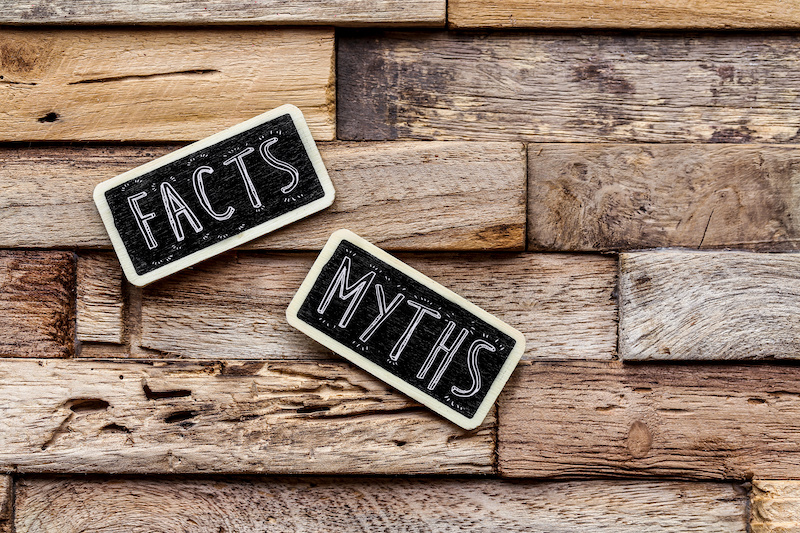The 5 Greatest Myths About Emotional Neglect

Of the hundreds of psychological and emotional conditions, Childhood Emotional Neglect (CEN) is, in my opinion, among the least widely understood.
That’s because we have spent decades talking about and studying the negative things that can happen to a child. As we’ve done all of this vital and important work, we have overlooked, and essentially ignored, an equal but opposite force: what fails to happen for a child.
Childhood Emotional Neglect (or CEN): A parent’s failure to respond enough to a child’s emotional needs.
Here are five natural, automatic assumptions that are frequently held and expressed, even by mental health professionals.
5 Common CEN Myths
Myth 1 — CEN is a form of child abuse.
This has been the default assumption of many people for many years. In professional articles and research studies, Emotional Neglect is typically lumped in with the various forms of child abuse. It’s assumed that all of these forms of childhood mistreatment belong in the same category, and have similar effects upon the child.
Yet nothing could be further from the truth. While abuse is a parental act; something a parent does to a child, Emotional Neglect is a parent’s failure to act. The emotionally neglectful parent may never hit the child or call her (or him) a name. A mother (or father) simply fails to notice or respond enough to her child’s emotional needs.
Not only does CEN happen differently, it also has different and distinct effects. Since the cause and effects are all different from abuse, the path to healing is also different.
Myth 2 — CEN happens more often in single-parent, divorced, or widowed families.
Contrary to how logical this assumption may seem, it’s not at all true. CEN is not about the number of available parents, or even the time available to spend with parents. It’s a matter of the emotional quality of the parent/child connection. Does the parent truly know the child on a deeply personal, emotional level? Does the parent notice, validate and respond to the child’s feelings? Does the parent teach the child how to tolerate, manage and express her emotions? These emotional aspects of parenting are not necessarily related to whether a parent is single or married.
In fact, many single parents are aware that their single parenthood, divorce, or loss has affected their children, and take extra care to notice what their children are feeling and support them.
Myth 3 — CEN is not as damaging as abuse.
It is true that CEN causes a different set of challenges than the experience of childhood abuse. But it’s not true that the effects of abuse are worse.
CEN is a quieter, less visible childhood experience than abuse so, as you might expect, its effects are quieter and less visible. But this is also what makes its effects more pernicious. Those who experience abuse will be impacted by it. They will grow up feeling perhaps violated, unsafe, and mistrusting. They may struggle to feel emotionally (or even physically) safe in relationships.
The effects of CEN are more like carrying around a weight. The CEN child must push away his emotions. In adulthood, he lacks access to this highly connecting, grounding, and enriching part of his life. He finds himself living in a gray world, feeling alone. Since he likely can’t recall the subtle and invisible emotional neglect from his childhood, he feels innately flawed. He assumes that he is to blame for these struggles.
Myth 4 — CEN is the result of a lack of love from your parents.
Ironically it’s often the most loving parents who emotionally neglect their children. This is because love and emotional attention are not the same thing and do not naturally go together.
In my experience, the single factor that most predicts a parent’s likelihood of emotionally neglecting her children is not whether she loves them. It’s having been raised with Emotional Neglect herself.
Myth 5 — All therapists know about CEN and how to treat it.
Virtually every therapist understands the foundation of CEN: that when a child’s emotional needs are not met, the child will suffer negative effects into adulthood.
However, there is far more to the concept of CEN than this general foundational point. What are the specific effects of CEN? Exactly how and why do they happen? How do you know when a patient has CEN? How do you treat CEN specifically? The answers to these questions are not common knowledge in the professional mental health community. Nor have they been the subject of research. My goal is to change this in the near future.
The Takeaway
CEN is real. When your parents fail to respond sufficiently to your emotional needs, it does not matter why. It leaves a mark on you as you grow into your adulthood. This mark you share with others who grew up in a similar way. This mark can be healed.
CEN can be invisible when it happens and also hard to remember once you grow up. To find out if you grew up with it Take The Emotional Neglect Test. It’s free!
To see a list of therapists who understand CEN, visit the Find A CEN Therapist List.
To learn much more about how to reclaim your feelings and use them, see the book Running On Empty: Overcome Your Childhood Emotional Neglect.
